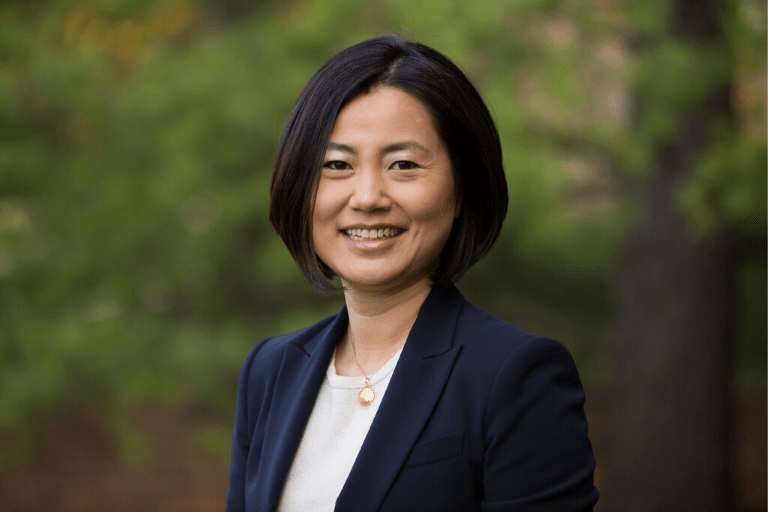Assistant Professor Young Anna Argyris, 2019 Diversity Research Network Program Launch Awards Program Recipient, Investigates Anti-Vaxx Social Media Messaging Phenomenon.
Social media is a realm of free speech and differing opinions. A group of social media users are using this platform to discuss what they believe to be the potential dangers of vaccinating children for HPV (human papillomavirus), the most common sexually transmitted infection.
Young Anna Argyris, Ph.D., assistant professor of Media and Information, has been selected as the 2019 recipient of the Diversity Research Network Program Launch Awards Program (DRN-LAP) for researching the influence of these messages on mothers deciding whether or not to vaccinate their children.
Social Media and Influence
The goal, Argyris said, of her research is to improve HPV vaccination rates among marginalized women. While the professor is one of communication and not of medicine, she saw a niche she could fill in helping to improve these rates. In fact, Argyris’ original research pertained to fake news and misinformation. What she found was that health misinformation had a big impact on our lives.
“The virus is one of the major causes of death, especially among underserved women. It’s definitely an important issue,” said Argyris. “We’ve noticed that anti-vaccination messages play a significant role in suppressing the vaccination behaviors among these groups of women.”
By crawling Instagram and Twitter with a team of students, the researcher noticed those in favor of anti-vaccination used different techniques on platforms to increase vaccine hesitancy among underserved populations.
A survey was also used to find that mothers’ interactions with the propaganda and influencers negatively influenced their opinions of immunizing their children. More than 90% of decisions made related to vaccinating children were made by mothers, in accordance to the team’s findings. She also stated that more than 90% of US mothers of adolescents are on Facebook or social media accounts. This allows them to be exposed to this messaging.
“They even trust these influencers more than their own doctors. How these influencers talk about these vaccines will influence important decisions on whether these mothers vaccinate their children or not,” said Argyris.
Awarding Meaningful Change
For her research, Argyris received $4980 from DRN-LAP in order to help support her in making any strides she needs to succeed. The award, given by the Office for Inclusion and Intercultural Initiatives, is “intended to aid scholars in launching new research through pilot study, creative projects of scholarly merit or the enhancement of a measure or technique.”
Arygyris stated that she would be using the funds to help further this line of research and continue looking into this anti-vaccination social media wave. Plans for the future also include laying groundwork for a program that can filter out misinformation and push down anti-vaccination propaganda and spam.
Learn about Media and Information
By John Castro
